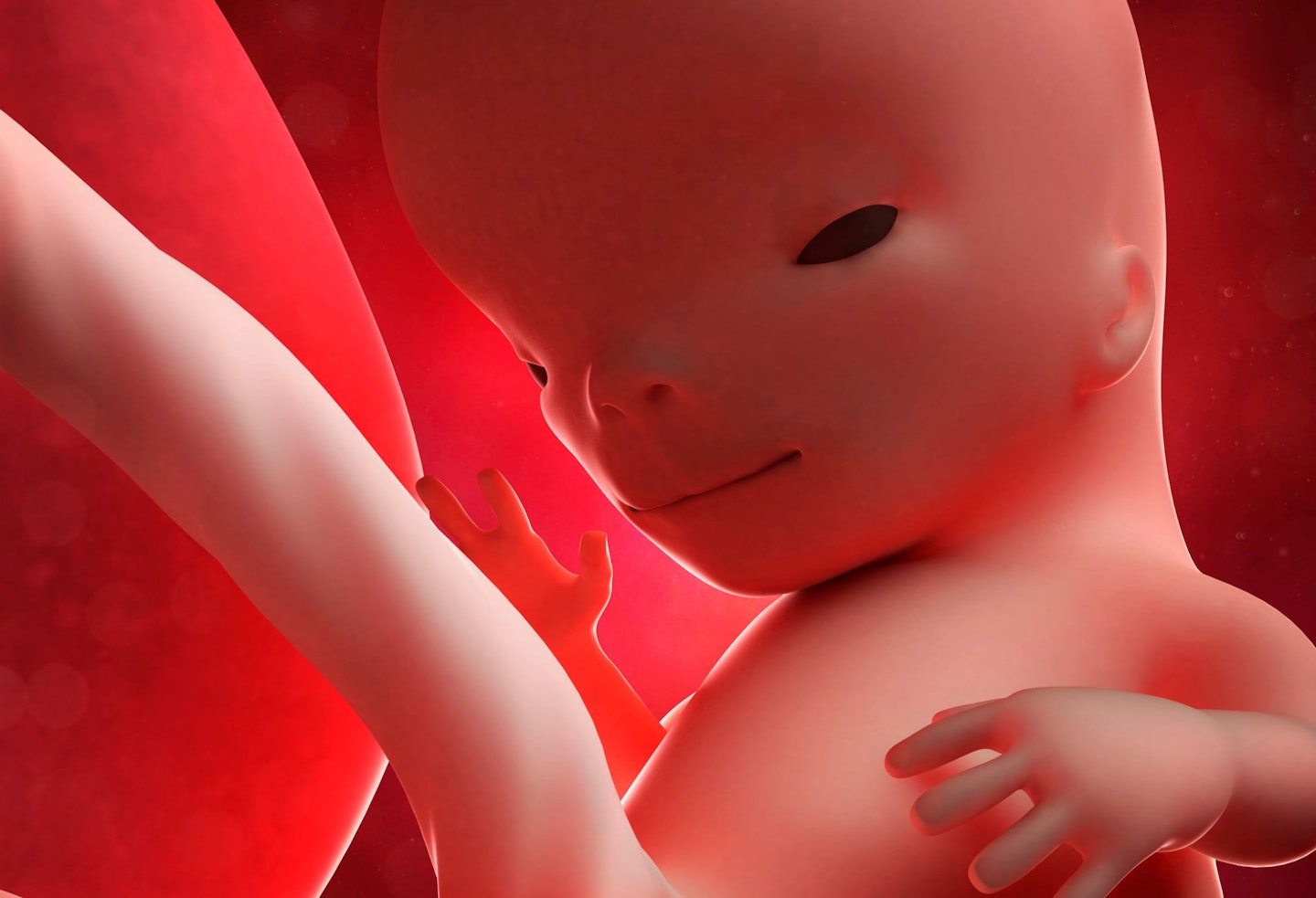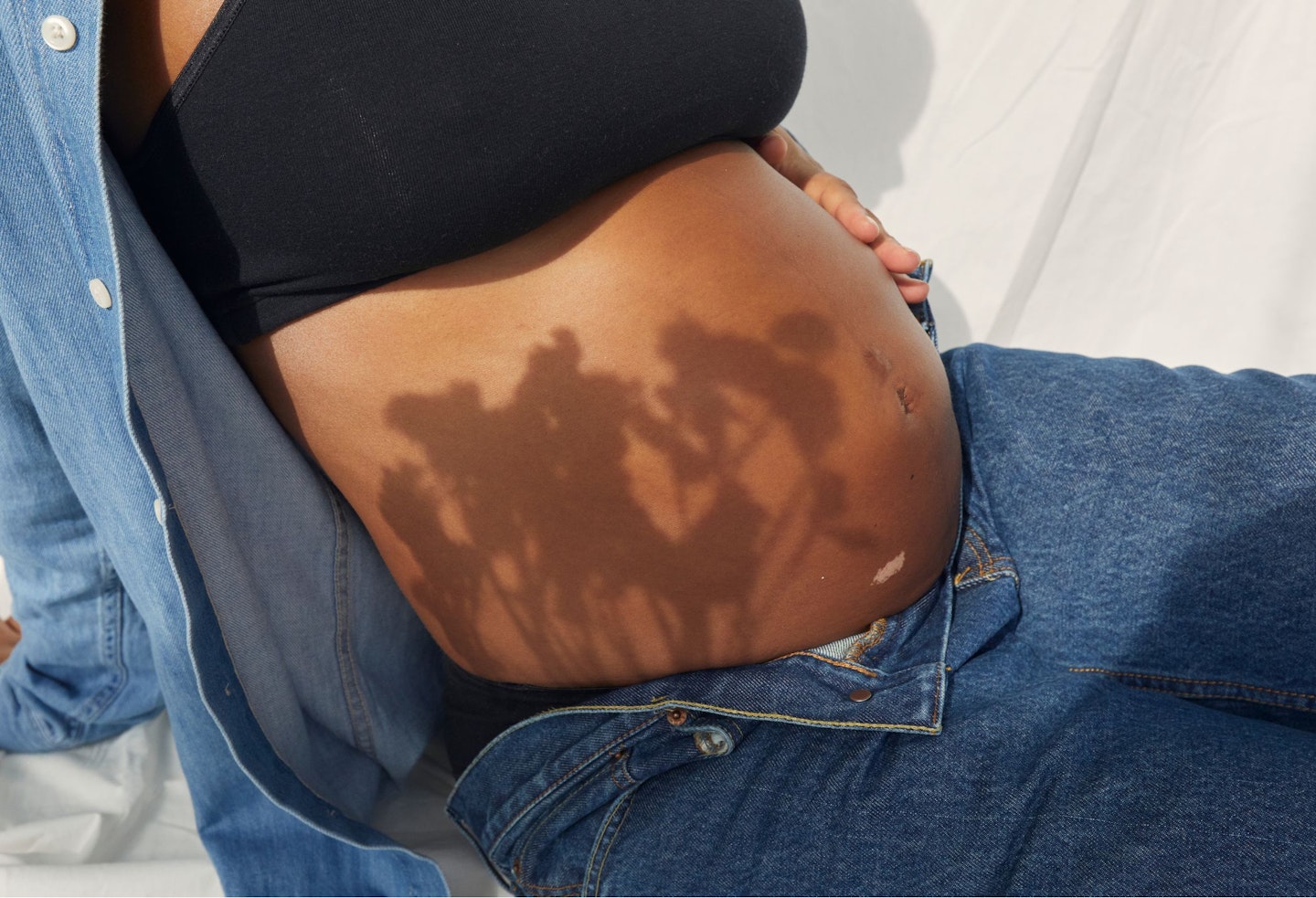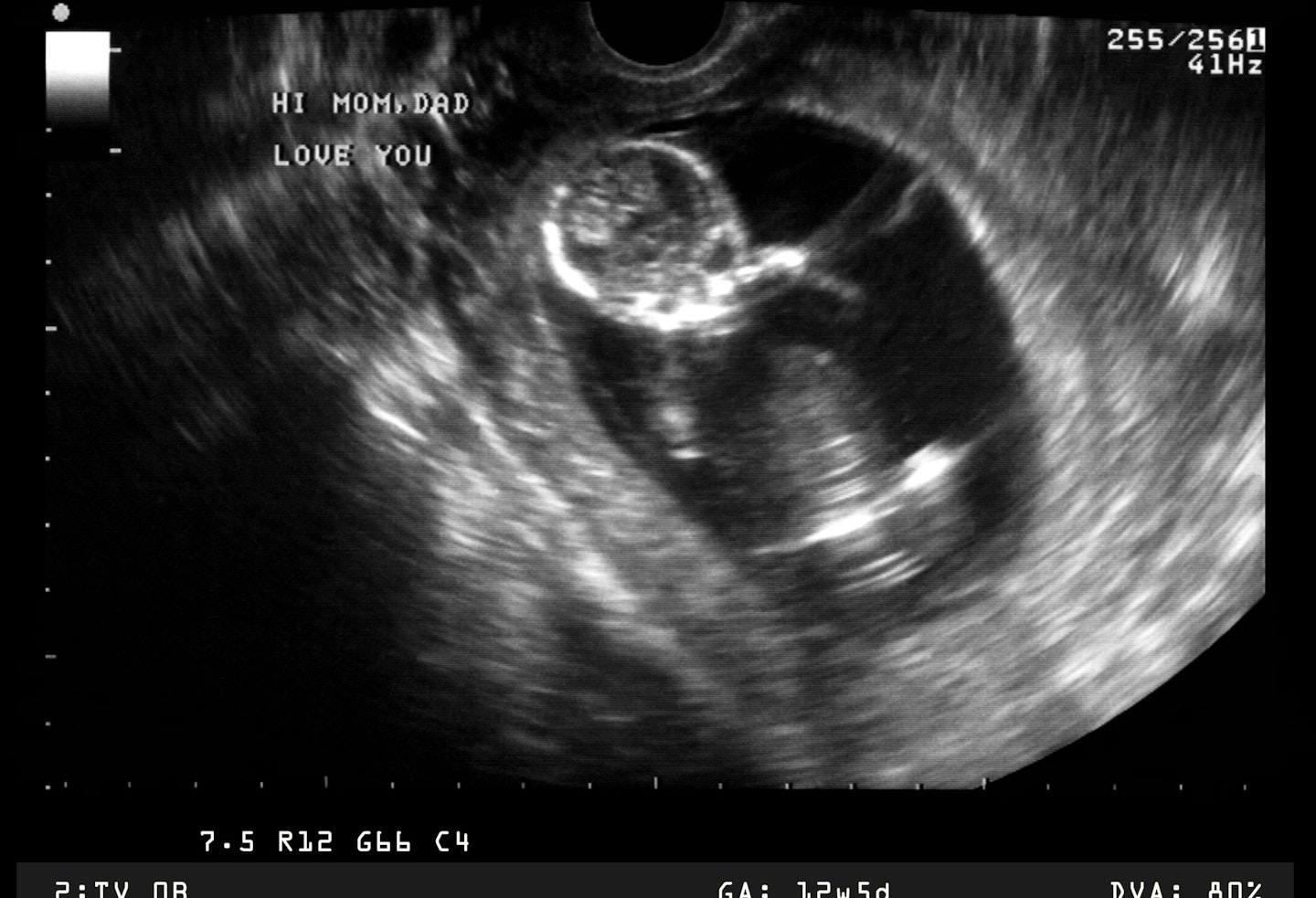
Medically Reviewed by: Lesley Bland BA (Hons), BSc (Hons) Midwifery Studies
You’re now 11 weeks pregnant, almost at the end of your first trimester! Whether this is your first pregnancy or not, every week brings new developments, questions, and changes. You might already be counting down to your 12-week scan, or simply trying to get through each day with less nausea. Either way, you're not alone.
At this stage, your baby is growing fast, and your body is doing a lot of behind-the-scenes work to support this new little life. From early pregnancy symptoms to how your bump might be looking and what’s happening at your ultrasound, we’ve got you covered with expert insights from Emiliana Hall, founder of The Mindful Birth Group®, to guide you through.
How many months pregnant is 11 weeks?
At 11 weeks pregnant, you’re around 2 months and 3 weeks into your pregnancy. The second trimester is just around the corner, and many mums-to-be find relief from first-trimester symptoms around this time.

Baby development at 11 weeks pregnant
Baby's size and appearance
At 11 weeks, your baby is about 41mm long from head to bottom, which is roughly the size of a fig. The head is still large compared to the body, but the body is growing quickly to catch up. The fingers and toes are separated, and tiny fingernails are forming. Miniature ears are also developing, making the baby look more human-like.
Baby's movements
Your baby is active, moving and kicking around inside your womb. However, you won’t be able to feel any of these movements yet; that will come in a few weeks.
Placenta development
The placenta is rapidly growing and will be fully formed by 12 weeks. It’s starting to take over the job of providing nourishment to your baby. However, Lesley Bland, a registered midwife and consultant midwife for My Expert Midwife, says, "The placenta will continue to grow in size throughout pregnancy."
Facial features
The bones of the face are now formed. Although the baby’s eyelids are still closed and won’t open for a few months, the ear buds on the sides of the baby’s head are growing and beginning to resemble ears.
Body growth
While the head still makes up about one-third of the baby’s length, the body is straightening out and developing at a faster pace. The fingers and toes are well-defined and no longer webbed.
11 weeks pregnant symptoms
At 11 weeks pregnant, many women experience a variety of symptoms due to hormonal changes and the body adjusting to pregnancy. Here are some common symptoms you might experience at this stage, according to Emiliana.
-
Nausea and vomiting: Often referred to as morning sickness, though it can occur at any time of the day. It usually starts to improve by the end of the first trimester. "However, some women do report nausea and vomiting throughout pregnancy," says Lesley.
-
Fatigue: Hormonal changes and the body working harder to support the pregnancy can make you feel more tired than usual.
-
Frequent urination: The growing uterus puts pressure on the bladder, leading to more frequent trips to the bathroom.
-
Breast changes: Breasts may feel tender, swollen, or heavier due to hormonal changes and preparation for breastfeeding.
-
Bloating and gas: Hormonal changes can slow down the digestive system, leading to bloating and gas.
-
Food cravings and aversions: You might have strong cravings for certain foods and aversions to others.
-
Mood swings: Hormonal fluctuations can affect your emotions, making you feel more moody or irritable.
-
Increased vaginal discharge: A thin, milky white discharge (leukorrhea) is normal and helps prevent infections.
-
Heartburn and indigestion: The hormone progesterone relaxes the valve between the stomach and oesophagus, causing acid reflux.
-
Constipation: Hormones can slow down bowel movements, leading to constipation.
-
Visible veins: Increased blood flow can make the veins more noticeable, particularly on the breasts and abdomen.
-
Weight gain: Although it's usually minimal in the first trimester, some weight gain is normal as your body starts to support the growing baby.
Your body at 11 weeks pregnant
Hopefully, that morning sickness will be starting to die down, and you’ll be getting your appetite back. Whilst the saying goes 'eating for two', don’t go overboard. Stick to a healthy diet of nutritious meals and avoid too much junk.
Lesley advises, "You don’t actually need any additional calories during your first trimester, but you are advised to start increasing calories during your second trimester by about 200-250 calories (the equivalent of a couple of slices of wholemeal toast with spread)."
Even if you’re still not showing that pregnancy bump (everyone will start to show at different times), you might find your jeans are feeling a little tighter this week. Of course, this is to be expected now that you’re pregnant, but bloating and indigestion are common symptoms thanks to those wonderful pregnancy hormones.

Your bump at 11 weeks pregnant
You might not be visibly "showing" just yet, especially if this is your first baby, but your uterus is growing and may start to rise above your pubic bone soon. You might feel a little more bloated or notice that your clothes are a snugger fit around the waist.
Looking after you at 11 weeks pregnant
1. Physical changes and symptoms
"As your baby continues to grow and develop, you might experience some common symptoms at 11 weeks. Nausea and fatigue (sometimes very extreme fatigue), which are typical in the first trimester, may still be present. However, many people find relief from these symptoms as they approach the end of this trimester.", says Emiliana. "It’s crucial to stay hydrated and maintain a balanced diet rich in nutrients. Consider incorporating small, frequent meals to help alleviate any nausea."
2. Mindful and emotional well-being
Emiliana says, "Pregnancy is not just a physical journey; it’s a mental and emotional one too. Take time for self-care and think about how day-to-day stress can be minimised as much as possible. It wouldn’t be realistic to completely avoid stress, but what can you step away from, even temporarily, to support your emotional wellbeing? Consider exploring mindfulness techniques or meditation to help you connect with your changing body and reduce any anxiety."
"Joining a supportive community, whether in-person or online, can provide a space to share experiences and gain valuable insights. The PregnaHub® is an excellent resource, offering relaxation sessions, pregnancy pilates, yoga and a moderated community to connect with other expectant parents," she adds.
3. Antenatal education
According to Emiliana, "At 11 weeks, you're at a good point to start thinking about antenatal education. Consider delving into topics like birthing options and postpartum care. It may feel like a long time away, but often this information is totally new, and so giving yourself time to learn and digest it throughout your pregnancy can be extremely helpful. Knowledge is empowering and can help you approach the upcoming months with confidence."
4. Partner involvement
"Encourage open communication about expectations, fears, and excitement with whoever is going to be supporting you throughout your pregnancy, birth and postnatal recovery period. This could be your romantic partner, a friend, a family member or a doula. Attend antenatal classes together to strengthen your bond and prepare for the journey ahead," Emiliana recommends.
5. Looking forward
"As you navigate the 11th week of pregnancy and beyond, remember that every journey is unique. Embrace the changes and reach out for support whenever you need to."
Other things to consider at 11 weeks pregnant

Your ultrasound
According to Emiliana, "At the 11th week of pregnancy, you are coming towards the end of the first trimester. It is at this time that you would normally have your first NHS scan. You may be feeling all kinds of emotions about this milestone."
The NHS offers all pregnant women an ultrasound scan between 10 weeks pregnant and 14 weeks pregnant, which usually ends up taking place at 12 weeks. Here's what to expect.
-
Fetal development: The baby is about the size of a fig, measuring approximately 1.6 inches long. You can typically see the head, body, arms, and legs more clearly, with fingers and toes starting to develop.
-
Heartbeat: Lesley says, "The baby’s heartbeat is between 140-175bpm at 11 weeks. Throughout pregnancy the heart rate gradually slows down until at full term (from 37 weeks) it rests between 110-160pm."
-
Movement: Your baby may begin making small movements, though you likely won’t feel them just yet.
-
Placenta and umbilical cord: These will also be visible, allowing your sonographer to check they are developing normally.
11 weeks pregnant FAQs
What pains are normal at 11 weeks pregnant?
At 11 weeks, some mild aches and pains are completely normal as your body adapts to pregnancy. You may feel:
- Mild cramping or twinges in your lower abdomen as your uterus grows.
- Backache from hormonal changes and loosening ligaments.
- Round ligament pain, which can feel like a sharp, pulling sensation on one or both sides of your abdomen when you move too quickly.
These types of pain are generally short-lived and nothing to worry about. However, if the pain is severe, persistent, or accompanied by bleeding, always contact your midwife or GP for reassurance.
Is it normal to pee all the time at 11 weeks pregnant?
Yes, totally normal and very common! The growing uterus puts pressure on your bladder, and pregnancy hormones like hCG and progesterone increase blood flow to your pelvic area. This means more frequent toilet trips. Try to stay hydrated, especially if you’re also experiencing nausea or vomiting.
Is it normal to have a bump at 11 weeks pregnant?
It varies from person to person. Some people start to notice a little bump or their jeans getting tighter around now, while others might not show until later on, especially if it’s their first pregnancy. Bloating can also give the appearance of a bump, even if your uterus hasn't popped above the pelvic bone just yet.
What am I supposed to feel at 11 weeks pregnant?
Physically, you may still be experiencing symptoms like nausea, fatigue, or breast tenderness, but these may begin easing as you near the end of your first trimester. Emotionally, it’s very normal to feel a mix of excitement, worry, and even mood swings due to hormone shifts. Many parents-to-be also feel more connected to their pregnancy once they’ve had or are approaching their first scan.
About the expert
Lesley Bland has also provided her expert advice and medically reviewed this article. Lesley is a Registered Midwife and Consultant Midwife for My Expert Midwife. She began her Midwifery career working in large teaching hospitals, rotating through all clinical areas with particular emphasis on antenatal and intrapartum care. Lesley qualified as a mentor of students and developed a passion for education, specialising as a Clinical Educator, teaching the maternity multidisciplinary team.
Emiliana Hall is the founder of The Mindful Birth Group, which provides award-winning Mindful Natal® courses and the PregnaHub® online platform, as well as an accredited Teacher Training program and Midwife CPD courses. She is also an experienced Birth and Postnatal Doula. Emiliana's vision is to make vital antenatal and postnatal education and ongoing support accessible to everyone in the UK.
About the author
Stephanie Spencer is the Deputy Digital Editor at Mother&Baby and auntie to four, aged 8 to 6 months old. With a particular interest in health, she loves discovering products that make parents' lives easier.
